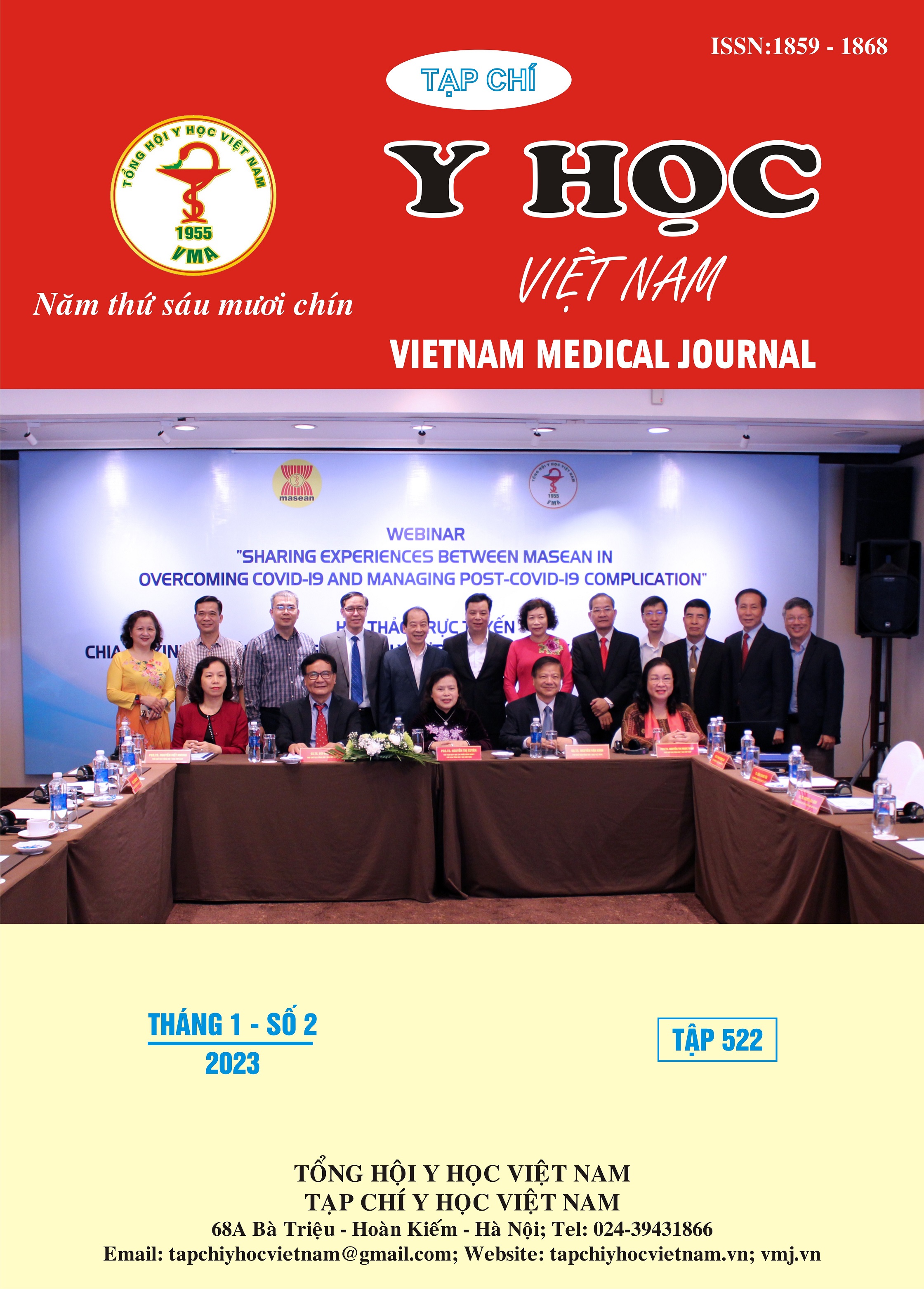THE BIS SCORE ON ADMISSION AND AFTER 72H OF POST CARDIAC ARREST PATIENT WITH SPONTANEOUS CIRCULATION RESTORATION WHO PRESENTED TO THE EMEGENCY DEPARTMENT
Main Article Content
Abstract
The purpose of resusitation for cardiac arrest is to establish the ROSC (return of spontaneous circulation). However, the restoration of brain function have great impact on the overall outcome of the patient. Multiple method can be used to ascess and predict the future prognosis, include the BIS (bispectral index). By monitoring the change of EEG, we are able to interpret the lesion and the action. We conducted the study on 31 patient with ROSC, by measure the BIS, the result showed the average BIS on admission was 35,6 ± 18,1, the group with neurologic good outcome had the BIS score of 51,7 ± 14,1, compare to the worse outcome 30,9 ± 16,5, significantly diffenrent, p < 0,01. The average BIS after 72 hour from admission was 44,9 ± 19,9, good outcome of 62,4 ± 18,2, compare to the unfavor outcome of 36,1± 14,4, p < 0,01. Conclusion: the BIS score on admission and after 72h had a meaningful contribution to the prognosis factors in patient with ROSC.
Article Details
Keywords
BIS score, cardiac arrest, circulation restoration.
References
2. Nguyễn Quốc Linh. Nghiên cứu đặc điểm lâm sàng và theo dõi điện não liên tục ở bệnh nhân hôn mê sau ngừng tuần hoàn. Đại họcY Hà Nội. 2017. Luận văn Thạc sỹ y học
3. Vattanavanit V, Uppanisakorn S, Nilmoje T. Post out-of-hospital cardiac arrest care in a tertiary care center in southern Thailand: From emergency department to intensive care unit. Hong Kong J Emerg Med. 2020;27(3):155-161.
4. Trần Hùng Mạnh. Nghiên cứu chỉ số NSE trong dự báo kết cục thần kinh sau cấp cứu ngừng tuần hoàn. Đại học Y Hà Nội. 2019. Luận văn Bác sỹ chuyên khoa II.
5. Nielsen N, Wetterslev J, Cronberg T, et al. Targeted Temperature Management at 33°C versus 36°C after Cardiac Arrest. N Engl J Med. 2013;369(23):2197-2206.
6. Jouffroy R, Lamhaut L, Guyard A, et al. Early detection of brain death using the Bispectral Index (BIS) in patients treated by extracorporeal cardiopulmonary resuscitation (E-CPR) for refractory cardiac arrest. Resuscitation. 2017; 120:8-13.
7. Jeong Ho Park, Lee SB, Wee JH, Choi SP, Park JH. Bispectral Index in Early Target Temperature Management Could Be a Good Predictor of Unfavourable Neurological Outcome After Cardiac Arrest. Circulation. 2017; 136(suppl_1):A12405-A12405


